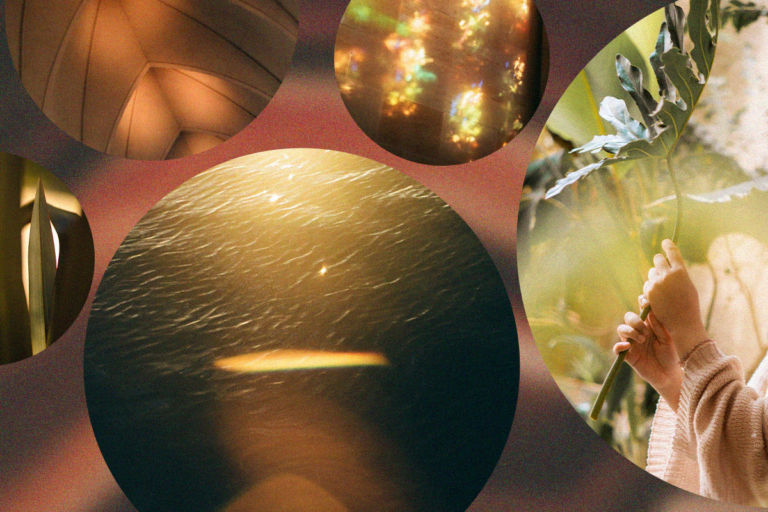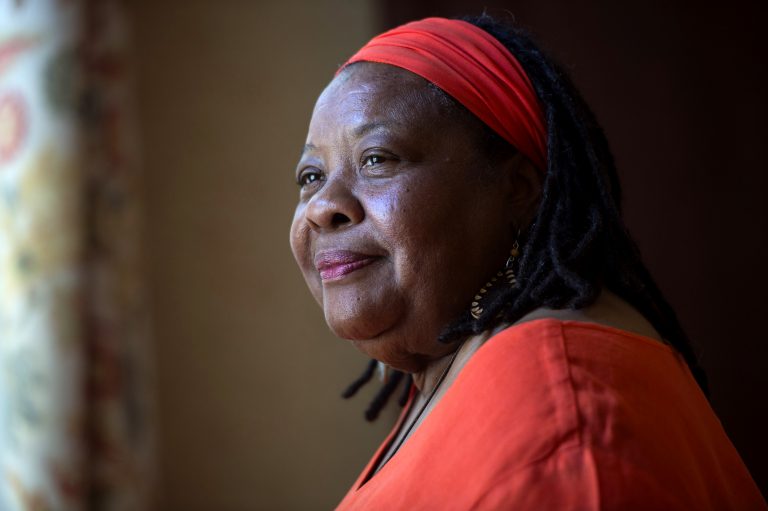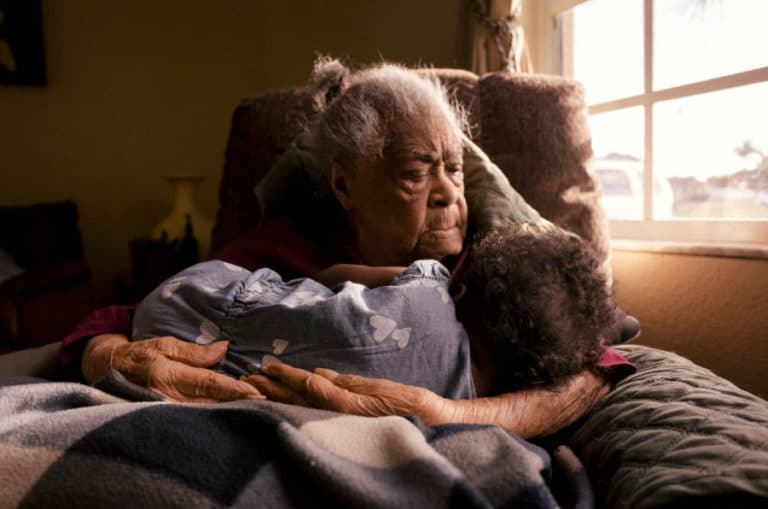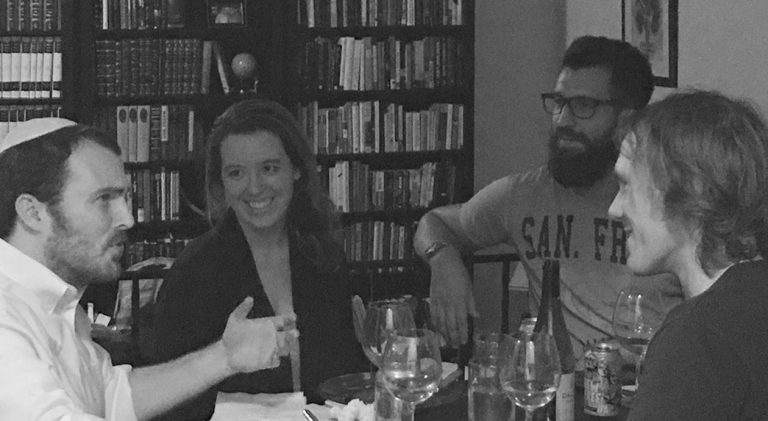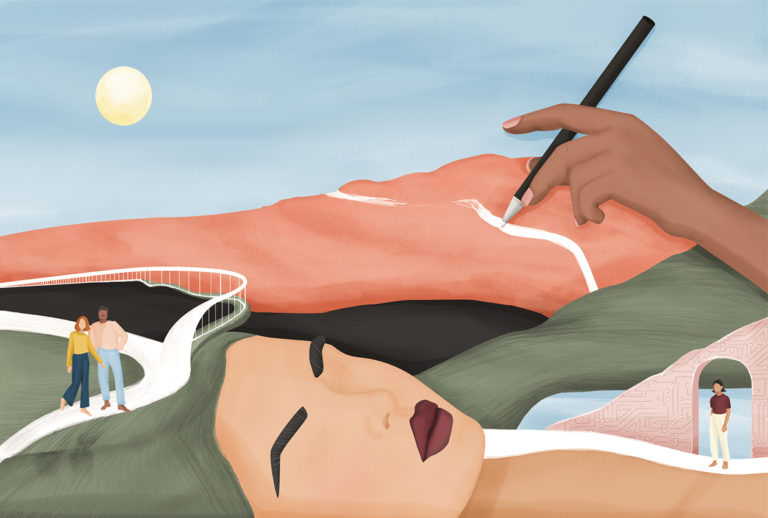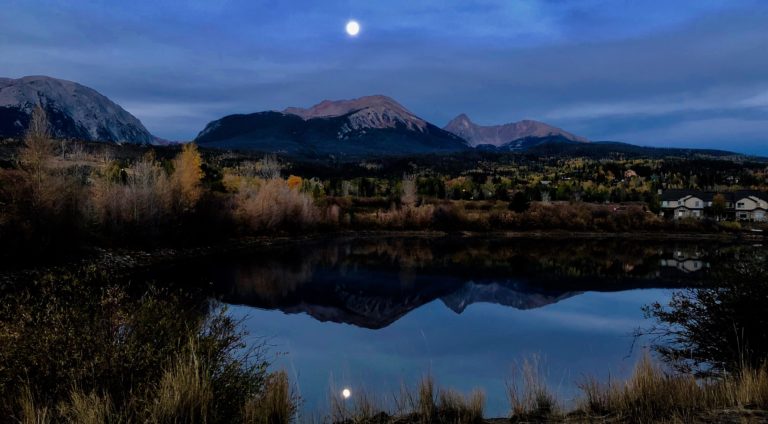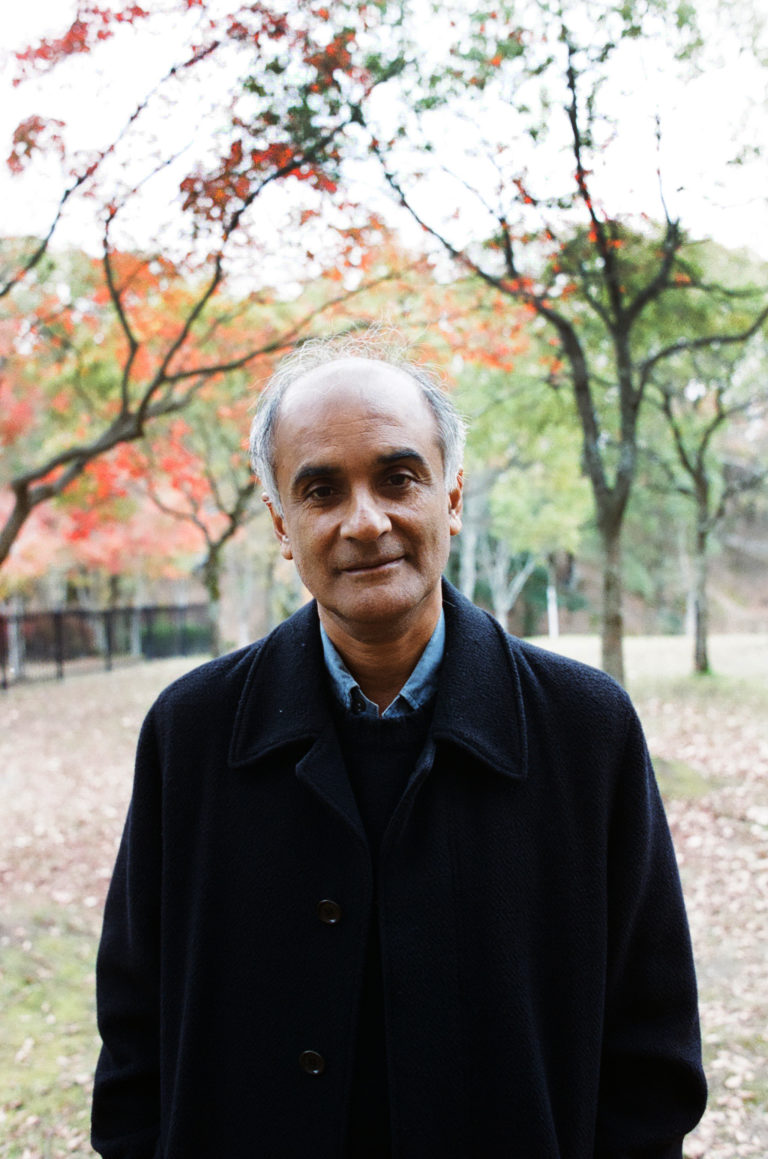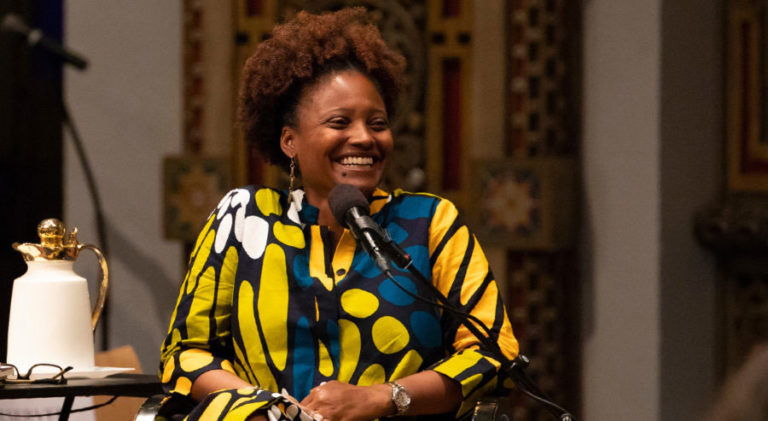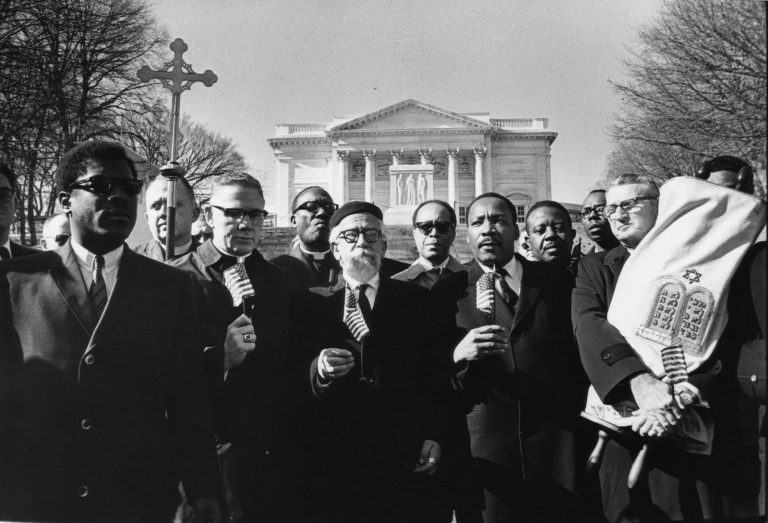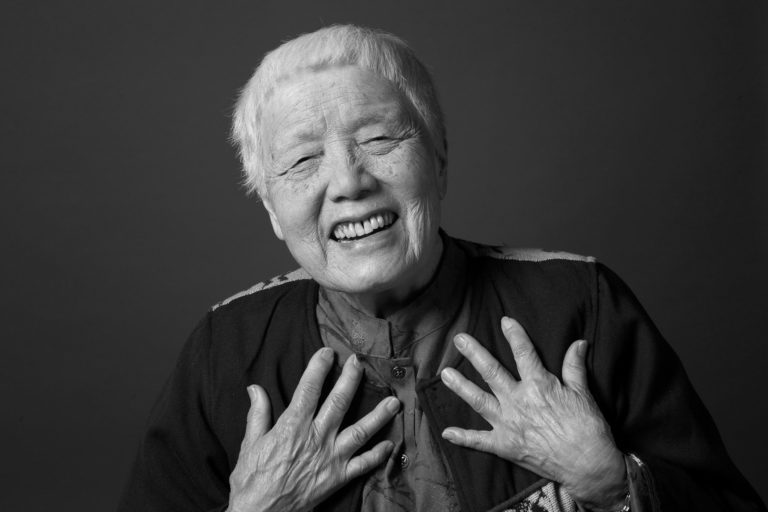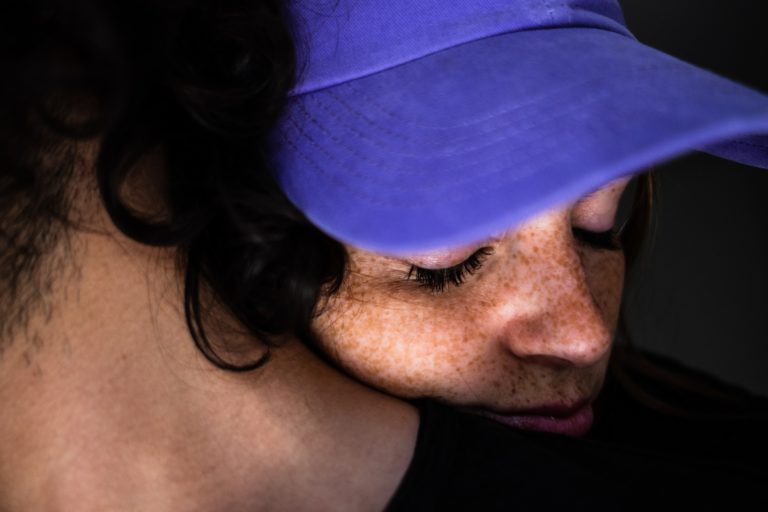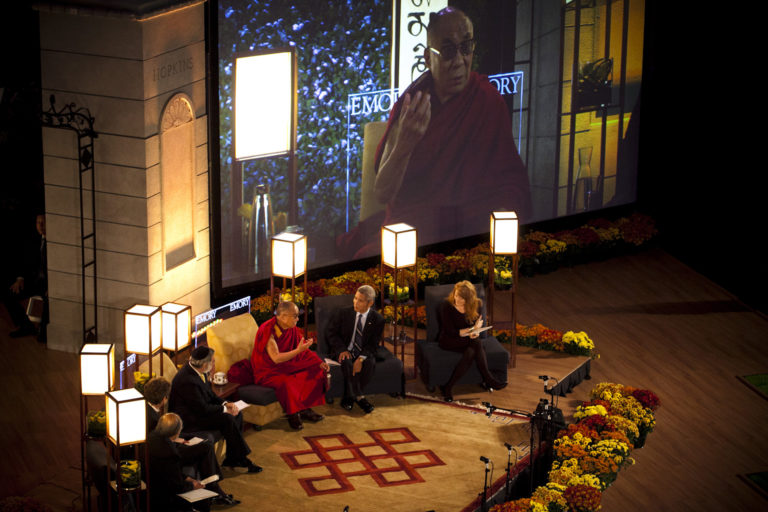The Venerable Thich Nhat Hanh, revered Zen master, teacher, and poet, died on January 22, 2022, in his native Vietnam. Brother Thay, as he was known by his community and students, transmuted what he had experienced of chaos and bloodshed in his country and his life into an ability to speak with equal measures directness and compassion to the many conflicts and bewilderments of contemporary life. Martin Luther King Jr. nominated him for the Nobel Peace Prize. He was a great teacher of the wonderful practice of “walking meditation.” He taught a way of living to face suffering, fear, and violence inside and beyond ourselves and yet to become “fresh, solid, and free.” Krista sat with him for this rare conversation in the early years of this show, and it has touched many. It is astonishing to re-experience the deep, enduring wisdom this monk leaves for our world now.
Spiritual Genius
Featured Items
“I like it much better than ‘religious’ or ‘spiritual’ — to be a seeker after the sacred or the holy, which ends up for me being the really real.”
– Rev. Barbara Brown Taylor
From Krista, about this week’s show:
It’s fascinating to trace the arc of spiritual searching and religious belonging in my lifetime. The Episcopal priest and public theologian Barbara Brown Taylor was one of the people I started learning about when I left diplomacy to study theology in the early 1990s. At that time, she was leading a small church in Georgia. And she preached the most extraordinary sermons, and turned them into books read far and wide. Then in 2006, she wrote Leaving Church — about her decision to leave her life of congregational ministry, finding other ways to stay, as she’s written, “alive and alert to the holy communion of the human condition, which takes place on more altars than anyone can count.”
She’s written other books since, with titles like An Altar in the World, Learning to Walk in the Dark, and Holy Envy: Finding God in the Faith of Others. Being in the presence of Barbara Brown Taylor’s wonderfully wise and meandering mind and spirit, after all these years of knowing her voice in the world, is a true joy. I might even use a religious word — it feels like a “blessing.” And this is not a conversation about the decline of church or about more and more people being “spiritual but not religious.” We both agree that this often-repeated phrase is not an adequate way of seeing the human hunger for holiness. This is as alive as it has ever been in our time — even if it is shape-shifting in ways my Southern Baptist and Barbara’s Catholic and Methodist forebears could never have imagined.
View
- List View
- Standard View
- Grid View
44 Results
Filters
Civil rights legend Ruby Sales learned to ask “Where does it hurt?” because it’s a question that drives to the heart of the matter — and a question we scarcely know how to ask in public life now. Sales says we must be as clear about what we love as about what we hate if we want to make change. And even as she unsettles some of what we think we know about the force of religion in civil rights history, she names a “spiritual crisis of white America” as a calling of today.
“Our discomfort and our grappling is not a sign of failure,” America Ferrera says, “it’s a sign that we’re living at the edge of our imaginations.” She is a culture-shifting actor and artist. John Paul Lederach is one of our greatest living architects of social transformation. From the inaugural On Being Gathering, a revelatory, joyous exploration of the ingredients of social courage and how change really happens in generational time.
We’d heard Derek Black, the former white-power heir apparent, interviewed before about his past, but never about the college friendships that changed him. After Derek’s ideology was outed at the New College of Florida, Matthew Stevenson (one of the only Orthodox Jews on campus) invited him to Shabbat dinner. What happened next is a roadmap for navigating some of the hardest and most important territory of our time.
Community organizers Rami Nashashibi and Lucas Johnson have much to teach us about using love — the most reliable muscle of human transformation — as a practical public good. Nashashibi is the founder of the Inner-City Muslim Action Network, a force for social healing on Chicago’s South Side. Johnson is the newly-named executive director of The On Being Project’s Civil Conversations Project. In a world of division, they say despair is not an option — and that the work of social healing requires us to get “proximate to pain.”
She has called Brain Pickings, her invention and labor of love, a “human-powered discovery engine for interestingness.” What Maria Popova really delivers, to hundreds of thousands of people each day, is wisdom of the old-fashioned sort, presented in new ways. She cross-pollinates between philosophy and design, physics and poetry, the intellectual and the experiential. We explore her gleanings on what it means to lead a good life — intellectually, creatively, and spiritually.
Walter Brueggemann is one of the world’s great teachers about the prophets who both anchor the Hebrew Bible and have transcended it across history. He translates their imagination from the chaos of ancient times to our own. He somehow also embodies this tradition’s fearless truth-telling together with fierce hope — and how it conveys ideas with disarming language. “The task is reframing,” he says, “so that we can re-experience the social realities that are right in front of us, from a different angle.”
Pico Iyer is one of our most eloquent explorers of what he calls the “inner world” — in himself and in the 21st century world at large. The journalist and novelist travels the globe from Ethiopia to North Korea and lives in Japan. But he also experiences a remote Benedictine hermitage as his second home, retreating there many times each year. In this intimate conversation, we explore the discoveries he’s making and his practice of “the art of stillness.”
Tracy K. Smith has a deep interest in “the kind of silence that yields clarity” and “the way our voices sound when we dip below the decibel level of politics.” She’s a welcome voice on the little leaps of the imagination that can restore us. She’s spent the past year traversing our country, listening for all of this and drawing it forth as the U.S. Poet Laureate. Krista spoke with her at the invitation of New York’s B’nai Jeshurun synagogue, which has been in communal exploration on creating a just and redeemed social fabric.
It’s easy to despair at all the bad news and horrific pictures that come at us daily. But Roshi Joan Halifax says this is a form of empathy that works against us. There’s such a thing as pathological altruism. This zen abbot and medical anthropologist has nourishing wisdom as we face suffering in the world.
September 21, 2017
Arnold Eisen
The Spiritual Audacity of Abraham Joshua Heschel
“In a free society, some are guilty, but all are responsible.” A mystic, a 20th-century religious intellectual, a social change agent, Rabbi Abraham Joshua Heschel marched alongside Martin Luther King, Jr., famously saying afterwards that he felt his legs were praying. Heschel’s poetic theological writings are still read and widely studied today. His faith was as much about “radical amazement” as it was about certainty. And he embodied the passionate social engagement of the prophets, drawing on wisdom at once provocative and nourishing.
The Brazilian lyricist Paulo Coelho is best known for his book, The Alchemist — which has been on the New York Times bestseller list for over 400 weeks. His fable-like stories turn life, love, writing, and reading into pilgrimage. In a rare conversation, we meet the man behind the writings and explore what he’s touched in modern people.
Xavier Le Pichon, one of the world’s leading geophysicists, helped create the field of plate tectonics. A devout Catholic and spiritual thinker, he raised his family in intentional communities centered around people with mental disabilities. He shares his rare perspective on the meaning of humanity — a perspective equally informed by his scientific and personal encounters with fragility as a fundament of vital, evolving systems. Le Pichon has come to think of caring attention to weakness as an essential quality that allowed humanity to evolve.
Chinese-American philosopher and civil rights legend Grace Lee Boggs turned 100 this summer. She has been at the heart and soul of a largely hidden story inside Detroit’s evolution from economic collapse to rebirth. We traveled in 2011 to meet her and her community of joyful, passionate people reimagining work, food, and the very meaning of humanity. They have lessons for us all.
She became a national figure as the face of the “Nuns on the Bus.” Sr. Simone Campbell is a lawyer, lobbyist, poet, and Zen contemplative working on issues such as “mending the wealth gap,” “enacting a living wage,” and “crafting a faithful budget that benefits the 100%.” She is a helpful voice for longings so many of us share, across differences, about how to engage with the well-being of our neighbors in this complicated age.
Courage is born out of vulnerability, not strength. This finding of Brené Brown’s research on shame and “wholeheartedness” shook the perfectionist ground beneath her own feet. And now it’s inspiring millions to reconsider the way they live, parent, and navigate relations with members of the opposite gender.
September 25, 2014
His Holiness the 14th Dalai Lama of Tibet, Jonathan Sacks, Katharine Jefferts Schori, and Seyyed Hossein Nasr
Pursuing Happiness
The XIV Dalai Lama seems to many to embody happiness — happiness against the odds, a virtue that is acquired and practiced. Before a live audience in Atlanta, Georgia, Krista had a rare opportunity to mull over the meaning of happiness in contemporary life with him and three global spiritual leaders: a Muslim scholar, a chief rabbi, and a presiding bishop. An invigorating and unpredictable discussion exploring the themes of suffering, beauty, and the nature of the body.
What happens when you bring together science and poetry on something like color or light? Arthur Zajonc is a physicist and contemplative. And he says we can all investigate life as vigorously from the inside as from the outside.
The Pause
Join our constellation of listening and living.
The Pause is our seasonal Saturday morning ritual of a newsletter. Replenishment and invigoration in your inbox. Wisdom to take into your week. And when you sign up, you’ll receive ongoing, advance invitations and news on all things On Being.
Search results for “”
View
- List View
- Standard View
- Grid View
Filters
